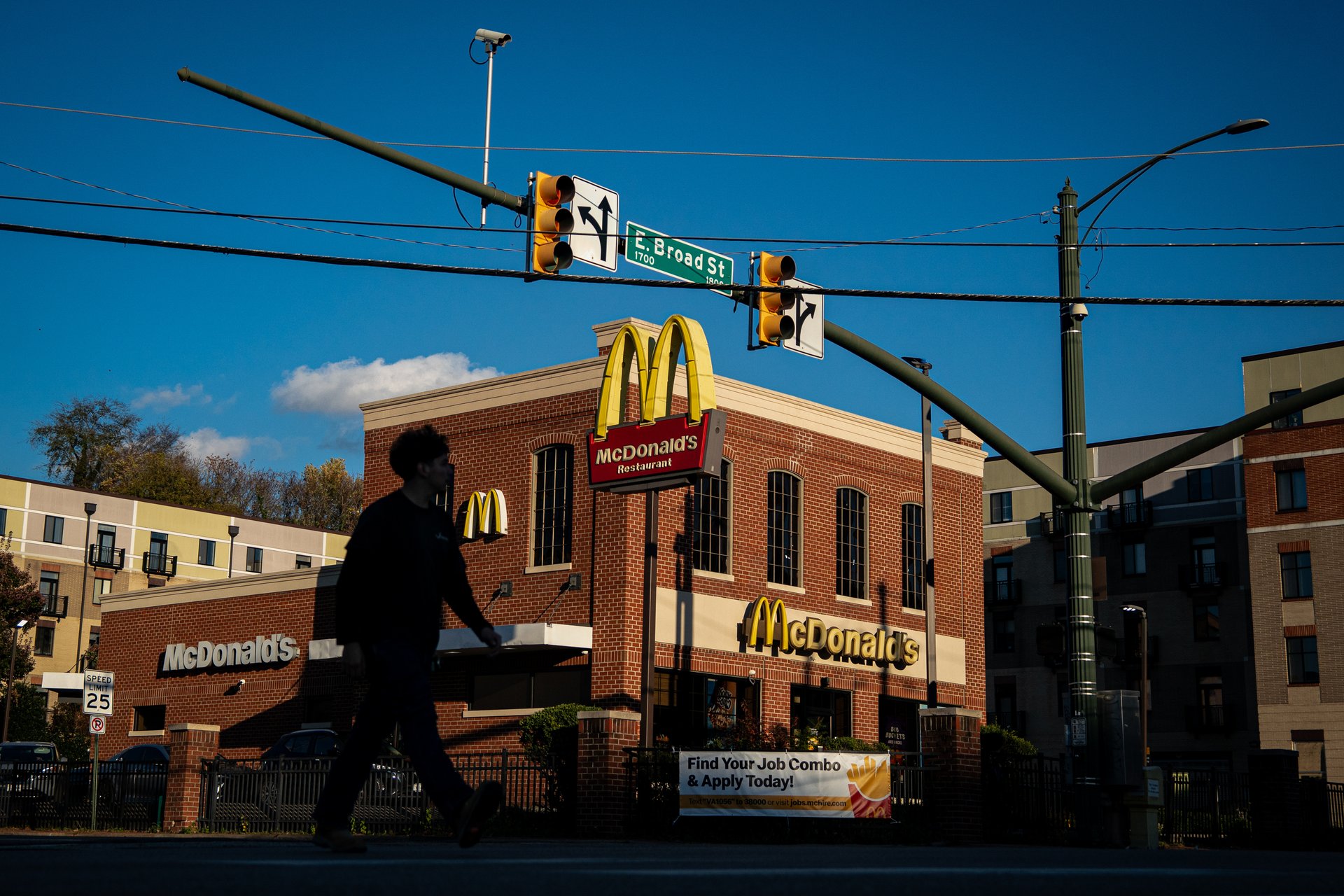McDonald's offers a snapshot of a $5 Meal Deal America
The fast food giant’s earnings showed solid global demand. But U.S. momentum was flat as the "bifurcated" economy persists and lower-income diners pull back

Al Drago/Bloomberg via Getty Images
For McDonald’s, the third quarter saw steady international growth, but the same worrying trend at home — with the burger giant struggling to keep meals cheap enough for cash-strapped, low-income Americans.
Suggested Reading
To wit: Global comparable sales rose 3.6%, the company said Wednesday, marking only a slight slowdown from 3.8% last quarter. Meanwhile U.S. same-store sales rose 2.4%, slipping from 2.5% last quarter and again led by “positive check growth,” not increased traffic. That’s industry shorthand for higher spending per visit rather than more customers coming through the door.
Related Content
Check growth vs. traffic growth
For companies like quick-serve restaurants that effectively live and die by such measures — at least on Wall Street — the struggle is to post positive same-store growth even as foot traffic slows or falls. Enter price adjustments. But what happens when the same trend keeping low-income customers away is the same one making them extra price sensitive? Chains are left between a rock and a hard place, and that’s where McDonald’s has found itself in recent years.
Not coincidentally, CEO Chris Kempczinski again credited “everyday value and affordability” and "menu innovation" as the major drivers. The company's value plays — exemplified by the $5 Meal Deal and the reintroduction of snack wraps — have helped it maintain share even as U.S. traffic among lower-income consumers continues to fall at a double-digit rate, according to the company’s prior commentary.
McDonald's overall systemwide sales rose 8% over last year to $36 billion, including about $9 billion from loyalty-member transactions. That’s roughly flat from the previous quarter, suggesting that even digital engagement — all those free fries with the purchase of any-size soda — may have peaked for now.
International markets did most of the heavy lifting. Comparable sales rose 4.3% in the company’s operated markets, led by Germany and Australia, and 4.7% in licensed markets such as Japan. Worldwide revenue climbed 3% to $7.1 billion, while operating income rose 5%. Net income edged up just 1% to $2.28 billion.
A new economic normal, rendered in earnings
Shares of McDonald's rose about 1% before Wednesday's market open, signaling that Wall Street approves of management's efforts to keep growth perking along somehow, whatever it takes.
And it is truly remarkable that, given the company's size, maturity and market penetration, McDonald's has found any levers to pull, even if those levers are primarily discounts and promotions. The chain can't do much about the larger economic trends that see high-income U.S. consumers spending freely, while households earning $50,000 or less are forced to pull back on the occasional McDouble. In this sense, earnings reports from the Golden Arches capture a new normal — a world in which even a snack wrap may be a kind of luxury good.
